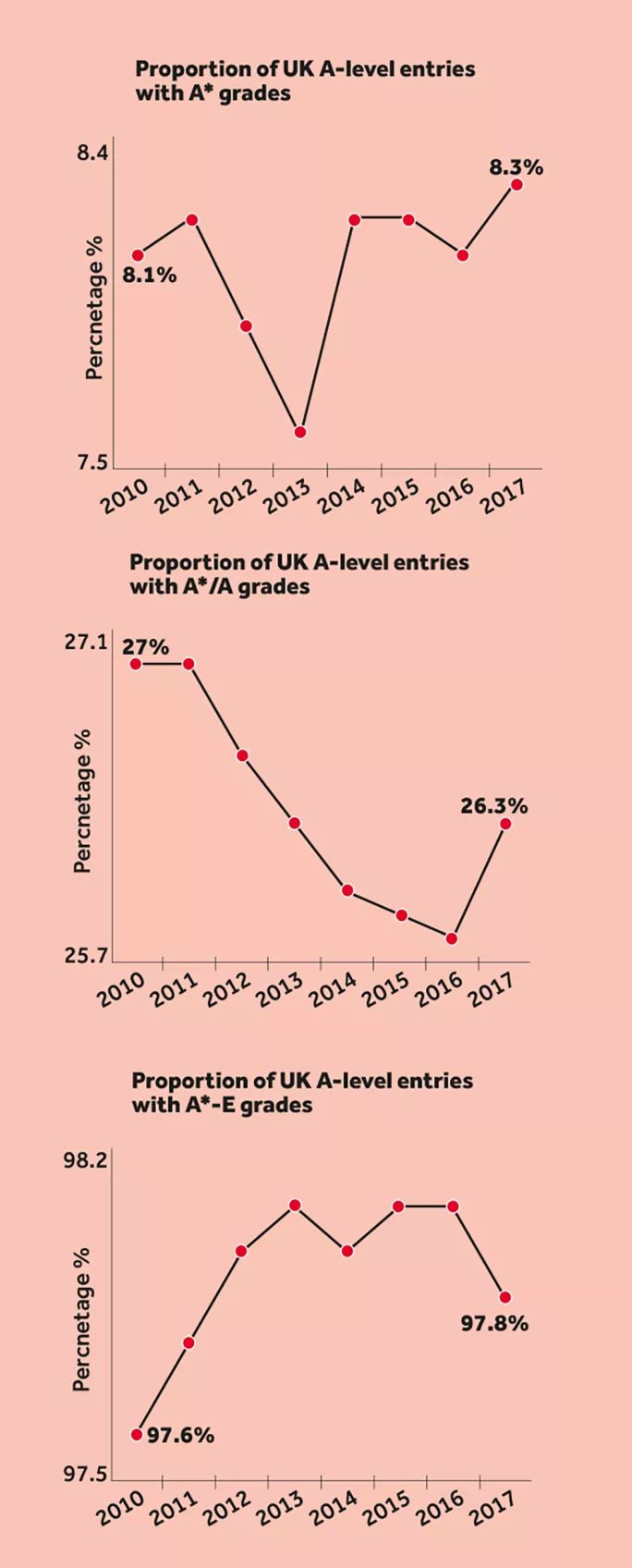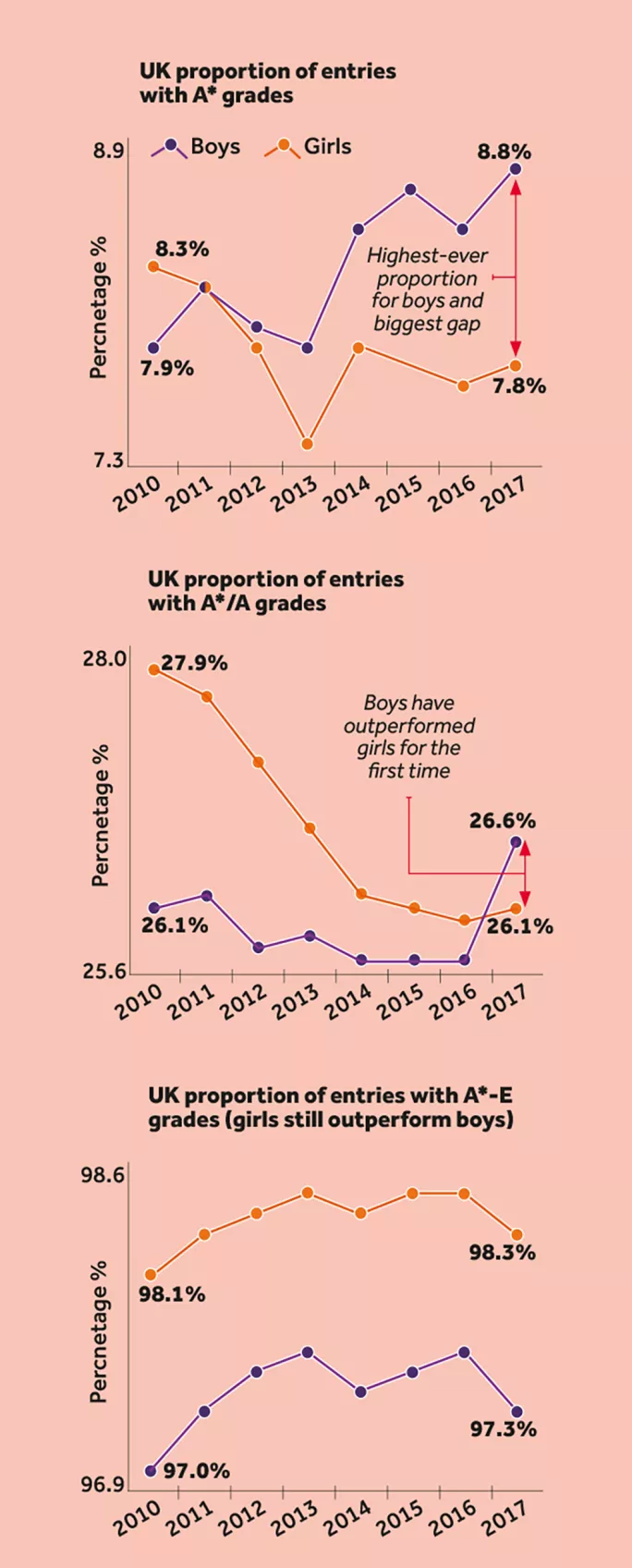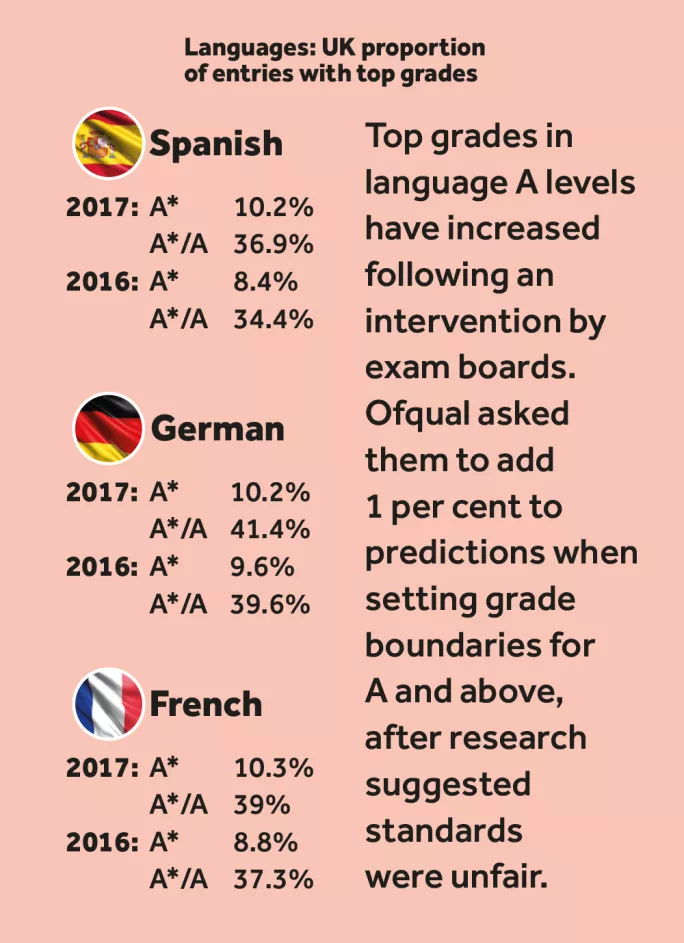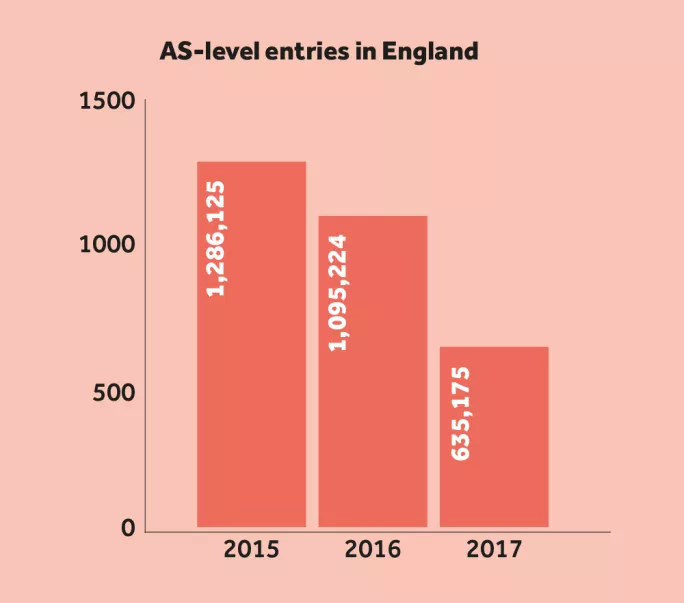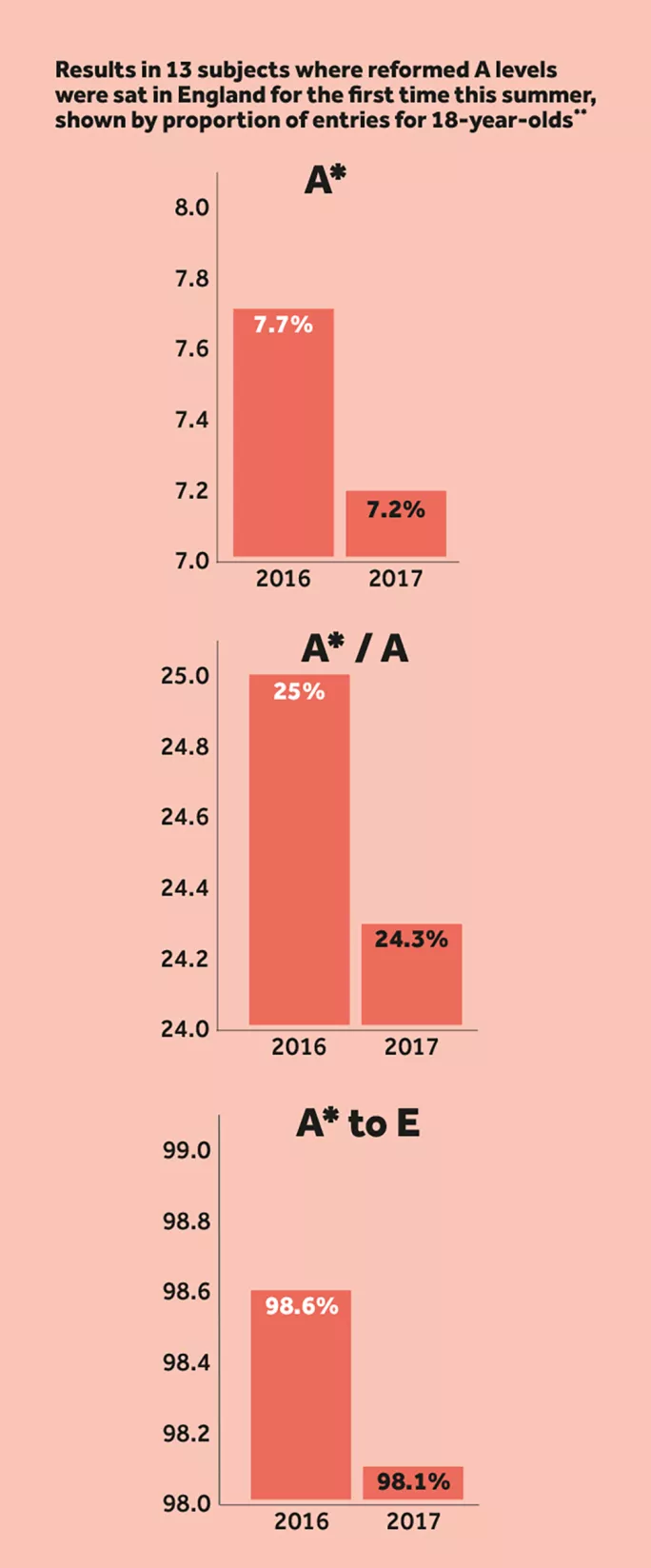This year’s A-level result headlines may have felt like the usual annual déjà vu, with the proportion of entries receiving the top A* grade reaching a new record level at 8.3 per cent.
But beneath the surface there were more interesting developments. This summer, the initial tranche of reformed “linear” A levels were sat in England for the first time.
Lurid claims in the press last weekend warned that Ofqual’s usual approach to grading would “dumb down” these subjects. In the event, the proportion of 18-year-old entries receiving top grades in them actually fell compared with last year.
Unlike the new GCSEs, there was no explicit intention that the new A levels should be tougher than before. Exam boards believe the drop occurred because the cohort is slightly weaker, Tes understands.
Meanwhile, predictions that the gender gap would narrow under the new reformed A levels - which have much less coursework and have replaced modular structures with end-of-course exams - did come true.
Across the 13 reformed A-levels in England, there is no longer any gender gap at A and A*, whereas last year girls led by 0.9 percentage points.
Boys catching up
Professor Alan Smithers, director of the Centre for Education and Employment Research at Buckingham University, suggested last week that the reforms could benefit boys as the modular reforms to A levels in 2000 had favoured girls.
“I think what happened when A levels changed from end-of-course examinations to modular - which led to a big gap opening in favour of girls - suggests that the reversion to end-of-course examinations will lead to a narrowing of the gap,” he said.
It is not only the reformed qualifications in England that closed the gender gap. Boys across the UK have received a larger share than girls of A and A* grades combined for the first time this year.
This summer’s results show that 26.6 per cent of UK boys’ A-level entries scored at least an A, compared with 26.1 per cent of UK girls’ entries.
Michael Turner, the director general of the Joint Council for Qualifications (JCQ), which represents exam boards, says “it is too early to draw any firm conclusions” from the data.
“However, it will be interesting to see if the pattern continues as we progress through the reform timetable,” he adds.
Falling AS entries
This year’s statistics also reveal that the number of AS level entries in England have plummeted by 42 per cent. This is a steeper fall than last year, when the first decoupled AS levels - which do not count towards final A-level grades - came in and entries dropped by 14.8 per cent.
Further maths has bucked the trend this year, with AS-level entries up by 4.5 per cent.
A new snapshot survey from the Association of School and College Leaders suggests that 86 per cent of heads are looking to cut AS-level courses in the future.
“It is increasingly clear that government reforms have sounded the death knell for AS levels,” Geoff Barton, general secretary of the ASCL, says. “The decision to decouple these qualifications was an entirely unnecessary reform that is narrowing the curriculum and reducing student choice.”
The JCQ will be carrying out research to further analyse the impact of the reforms.
“The fall in AS entries in England - and the small decline in outcomes in the reformed subjects at A level - raises an interesting question about the relationship between the two qualifications. In particular, the impact that taking the AS level has on performance at A level,” Turner says.

